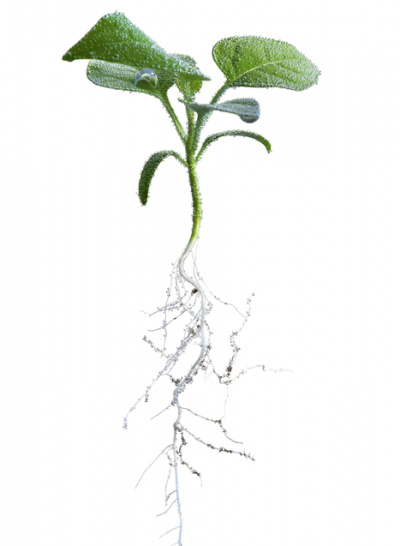Reviewed by Alex SmithJun 13 2022
Across the world, extreme weather phenomena are on the constant rise, like frequent fires and droughts. Also, floods are a clear impact of climate change.
 When observing thale cress, Sjon Hartman and his collaborators found out which signaling pathways the hormone ethylene uses to switch on a molecular emergency program in plants in the event of flooding. Image Credit: Iris Hartman/University of Freiburg.
When observing thale cress, Sjon Hartman and his collaborators found out which signaling pathways the hormone ethylene uses to switch on a molecular emergency program in plants in the event of flooding. Image Credit: Iris Hartman/University of Freiburg.
As far as agriculture is concerned, a flooded field implies significant losses: nearly 15% of global crop losses are caused as a result of flooding.
As a part of a collaboration between Freiburg, Utrecht in the Netherlands, and other institutes, Junior Professor Dr. Sjon Hartman from the Cluster of Excellence CIBSS-Center for Integrative Biological Signaling Studies at the University of Freiburg, has currently found that a signaling molecule could make plants highly resistant to flooding.
Ethylene is a gaseous plant hormone that causes the plant to turn on a type of molecular emergency power system that helps it endure the lack of oxygen at the time of flooding. Earlier, the team had illustrated that ethylene transmits a signal to the plant that it is present underwater.
The survival rates of the plants were enhanced by pretreating the experimental plants with the hormone. The outcomes, which appeared in the Plant Physiology Journal, must help fight flooding and waterlogging in agriculture and, for instance, come up with resistant plant varieties.
Tracking the Adaptations to Wet Conditions
Plant species vary significantly in their potential to endure periods of waterlogging or flooding.
In the case of potatoes, the roots die after two days due to a lack of oxygen. Rice plants are much more resistant, able to survive their entire lives in waterlogged paddy fields. Plants notice that they are surrounded by water because the gas ethylene, which all plant cells produce, can no longer escape into the air.
Dr. Sjon Hartman, Junior Professor, Cluster of Excellence CIBSS–Centre for Integrative Biological Signalling Studies, University of Freiburg
A model organism for plant research called Arabidopsis thaliana could be utilized to learn about the proteins and genes that are responsible for this adaptation.
The scientists illustrated this in earlier studies that were performed at Utrecht University. Receptors across the plant later reacted to high concentrations of the hormone.
Simulate Flooding with Oxygen Deprivation
The researchers simulated flooding by positioning Arabidopsis seedlings in a bell jar in the absence of oxygen and light. While the seedlings were previously exposed to ethylene gas, the cells of the root tip lasted longer.
The plants that were treated halted root growth and changed energy production in the cells to oxygen-free metabolic processes. Ethylene also heavily guarded the cells against detrimental oxygen radicals that accumulate in oxygen-deprived plants. This was disclosed by the protein composition of the cells and analyses of gene activity.
Taken together, these rearrangements that ethylene triggers improve plant survival during and after flooding. As we better understand these signaling pathways, we can learn to make crops more resilient to flooding to combat climate change.
Dr. Sjon Hartman, Junior Professor, Cluster of Excellence CIBSS–Centre for Integrative Biological Signalling Studies, University of Freiburg
Journal Reference:
Liu, Z., et al. (2022) Ethylene augments root hypoxia tolerance via growth cessation and reactive oxygen species amelioration. Plant Physiology. doi.org/10.1093/plphys/kiac245.